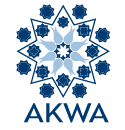Eid is one of the biggest festivals of the entire year. Bangladesh is one of the few countries where festivals of every religion are celebrated as official government holidays. For this reason, the joy, the peace and the happiness of Eid are spread out amongst all of the citizens in the country regardless of their religion and status. People who earn a living in big cities travel to their villages to spend the Eid with their families. All public transportation becomes overloaded, even the roofs become full, with people who want to go back home for the holidays.
People decorate their homes with new bed covers, curtains, table clothes, and fresh flowers in the vases. Everyone keeps their house open to entertain their family, friends and neighbors. Traditional food preparations start as soon as the new moon comes out in the sky including polau, biryani, chicken curry, chicken roasts, beef curry, kabab, kofta or whatever else can be made. Desserts are also a big part of this special day. The most popular dessert in Bangladesh is called shemai (vermicelli which can be prepared with milk or just butter and sugar), then firni (rice pudding), jorda (sweet rice with orange food coloring), and different types of halwa.
In the morning, all the men and the children go to the mosque or “eidgah” (open space outside a mosque) for Eid prayer in their new traditional clothes wearing attar (a natural oil perfume). After the Eid prayer when the men return home, sweets are served first. Some people also practice the sunnah of eating dates before the prayer. The women and the girls also wear new dresses which is an exciting part of this festival. They adorn their hands with intricate mehendi/henna patterns and buy matching ornaments for their outfits. Children give salam by touching the feet of their elderly family members and receive Eid money called “salami” or “eidi” which adds more fun to the day.
Aside from the zakat al-fitr, people always give regular zakat during this type of religious festival to the less fortunate ones usually in the form of cash, food and clothing. The men also visit the graveyards after the Eid prayer or later in the day to recite Qur’an for their loved ones. Eid fairs, games and races are organised at many rural places which creates a festive atmosphere. The most special act during this day is embracing or hugging each other after the Eid prayer and greeting each other by exchanging good wishes saying “Īd mubôrok”.
Composed by Filiz Arslan




Yorum Bırakın / Leave a Comment